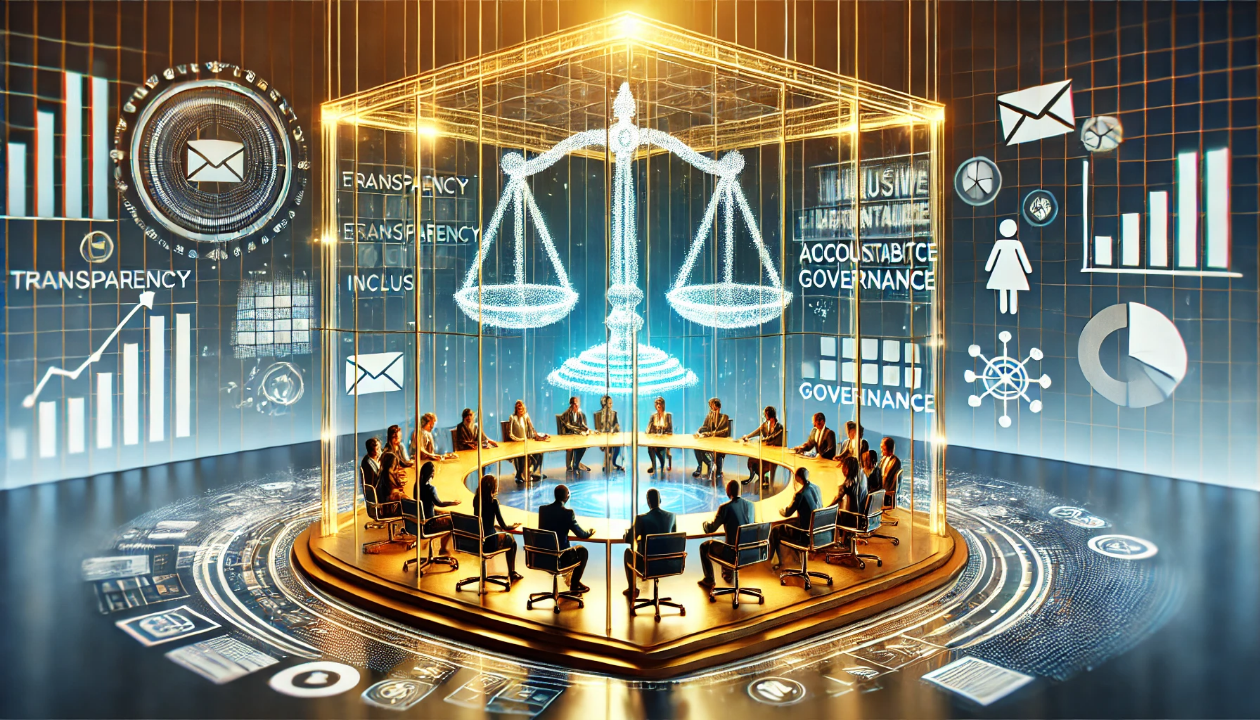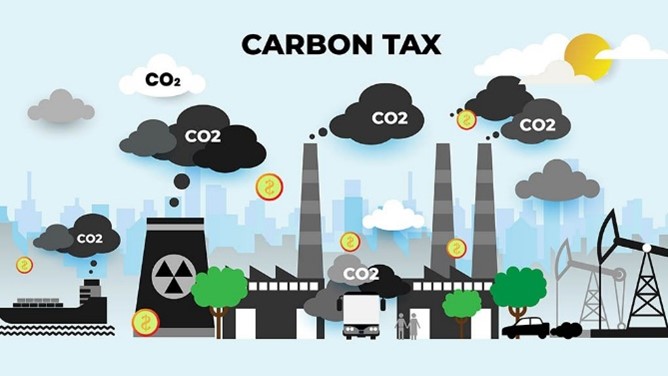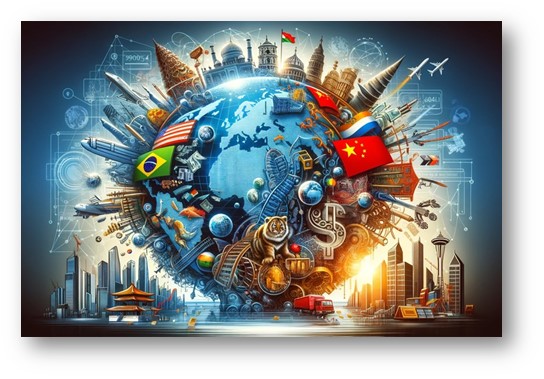How can international financial institutions adapt to address emerging global challenges?

How can international financial institutions adapt to address emerging global challenges?
by Nathaniel 11:29am Jan 11, 2025

How can international financial institutions adapt to address emerging global challenges?
International financial institutions (IFIs) like the International Monetary Fund (IMF), World Bank, and regional development banks have historically played a central role in promoting economic stability and development. However, as the global landscape evolves, they must adapt to address emerging challenges. Here’s how IFIs can evolve and respond to contemporary issues:
1. Addressing Climate Change and Environmental Sustainability
Integrating Climate Risk into Financial Support: IFIs can integrate climate risk assessments into their financial assistance and loan conditions. This could involve evaluating how climate change may affect a country's economy and advising on sustainable development strategies.
Funding Green Investments: The World Bank, for instance, could significantly increase funding for renewable energy projects, green infrastructure, and sustainable agriculture. This would not only reduce carbon emissions but also help countries transition to low-carbon economies, which are crucial for global stability.
Climate Change Adaptation Programs: Both the IMF and World Bank can expand their focus on climate adaptation, helping vulnerable countries invest in infrastructure that withstands extreme weather events, such as resilient coastal infrastructure or drought-resistant agriculture.
Support for Carbon Pricing: The IMF and World Bank can work with countries to develop carbon pricing mechanisms (like carbon taxes or emissions trading systems), which incentivize businesses and governments to reduce their carbon footprint.
2. Promoting Inclusive and Sustainable Growth
Focusing on Inequality: In response to rising inequality, IFIs should prioritize policies that promote inclusive growth. This involves ensuring that the benefits of economic growth are broadly shared,particularly among vulnerable populations. This could include more funding for social safety nets, healthcare, education, and programs that reduce income inequality.
Targeting Structural Reforms with Equity: The IMF and World Bank can ensure that their loan programs and structural adjustment reforms prioritize social protection (e.g., unemployment insurance, healthcare, pensions) to reduce the negative impacts of reforms on low-income populations and workers in vulnerable sectors.
Strengthening Social and Human Capital: IFIs can provide more resources for human capital development, such as education and skills training programs that empower people, especially youth and women, in the labor market. This would enhance social mobility and improve the resilience of economies to global disruptions.
3. Digital Transformation and Technological Change
Supporting Digital Economies: As technology rapidly reshapes the global economy, IFIs can support the development of digital infrastructure in developing countries. This could include expanding access to high-speed internet, promoting digital financial systems, and fostering innovation ecosystems that can create jobs and spur growth.
Financial Inclusion:IFIs can promote financial inclusion by helping countries develop digital payment systems and mobile banking, which can empower underserved populations. For example, the World Bank could scale up efforts to build inclusive fintech systems that offer affordable financial services to rural areas and marginalized communities.
Reskilling the Workforce: As automation and artificial intelligence transform industries, IFIs can support skills development programs and education reform to help workers transition to the digital economy. This would address potential job displacement and ensure that workers are equipped for the future job market.
4. Debt Sustainability and Global Financial Stability
Reforming Debt Relief Mechanisms: Many developing countries face significant debt burdens. IFIs should work to restructure or forgive debt where necessary, especially for low-income nations. They can also help build frameworks that allow for sustainable debt management, avoiding the risks of defaults that could destabilize economies.
Enhanced Coordination in Debt Management: The IMF and World Bank can facilitate greater coordination among creditors, including private sector lenders, to ensure that countries have access to debt relief or restructuring programs when needed. This can help prevent the debt crises that can lead to financial instability and loss of investor confidence.
Strengthening the Global Financial System: IFIs should continue enhancing global financial governance to improve market resilience. This involves addressing issues such as capital flight, financial market volatility, and strengthening global financial regulations to prevent financial crises.
5. Geopolitical Tensions and Global Economic Integration
Fostering Multilateral Cooperation: In a time of increasing geopolitical tension and protectionism, IFIs can promote international cooperation by encouraging countries to work together on shared challenges like pandemics, climate change, and migration. They can act as mediators and platforms for dialogue, helping countries find cooperative solutions that benefit the global economy.
Supporting Global Trade: In the face of rising protectionist sentiments, IFIs can support the global trading system by providing technical support to countries on trade policy, helping them navigate multilateral agreements(e.g., WTO) and ensure that trade is inclusive and equitable. This would help countries capitalize on globalization’s benefits without exacerbating inequalities.
Adapting to a Changing Global Order: As emerging economies (such as China and India) continue to grow in economic influence, IFIs must adjust their governance structures and funding priorities. This could involve increasing the voting power and representation of emerging markets and developing countries in these institutions, ensuring that their voices are better heard in global decision-making.
6. Pandemics and Global Health Crises
Global Health and Economic Recovery: The COVID-19 pandemic highlighted the intersection between public health and economic stability. IFIs like the World Bank should expand their support for health systems, providing financing for medical infrastructure, universal healthcare systems, and vaccines.This helps prevent the economic devastation caused by health crises, particularly in low-income countries.
Pandemic Preparedness:IFIs can work with governments to develop pandemic preparedness frameworks, ensuring that countries have the capacity to respond effectively to future health emergencies. This could include funding for surveillance systems, strengthening healthcare infrastructure, and ensuring the resilience of supply chains for essential goods.
7. Enhancing Transparency, Accountability, and Governance
Improving Accountability: To ensure that their financial assistance is used effectively, IFIs can require greater transparency and accountability in the use of funds. This includes working closely with local civil society organizations and the private sector to monitor the implementation of projects, ensuring that funds reach their intended beneficiaries.
Promoting Anti-Corruption Efforts: IFIs can play an essential role in anti-corruption efforts by working with governments to create stronger legal frameworks, improve public sector management, and build more transparent institutions. Anti-corruption measures help countries use resources more efficiently and promote long-term stability.
8. Improving Flexibility and Tailoring Policies to Local Contexts
Context-Specific Solutions: As countries face diverse challenges, IFIs can adapt their loan conditions and recommendations to be more context-specific. This means that rather than imposing a one-size-fits-all approach, institutions can work with countries to design solutions that fit their unique political, social, and economic contexts, ensuring more sustainable outcomes.
Flexibility in Loan Terms: IFIs could offer more flexible loan terms, such as longer repayment periods or interest-free loans for the most vulnerable countries, to ensure that countries are not saddled with unsustainable debt. This flexibility would allow countries to focus on their development goals without the pressure of immediate repayment.
Conclusion: Adapting to Emerging Global Challenges
International financial institutions must evolve to address the interconnected challenges facing the world today, including climate change, global health crises, technological disruption, inequality, and geopolitical tensions. By focusing on inclusive growth, environmental sustainability, digital transformation, and financial stability, IFIs can help create a more resilient, equitable, and sustainable global economy. Their success in adapting to these challenges will depend on their willingness to implement more flexible, context-specific, and collaborative approaches that respond to the unique needs of countries in the current global landscape.






